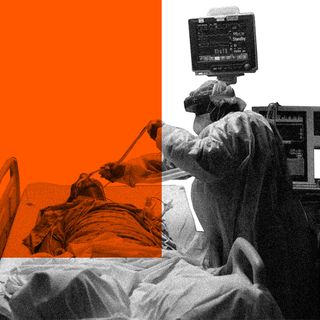The novel coronavirus can be killed quickly, efficiently, and cheaply using ultraviolet light-emitting diodes, or UV-LEDs, a new study has found.
The finding could translate into a wide range of applications for disinfecting large public surfaces and spaces and thus minimizing the spread of Covid19 while countries await mass vaccination.
Vaccine distribution in India could take over a year, according to Dr. Randeep Guleria, director of the All India Institute of Medical Sciences (AIIMS), Delhi; until August 2021, the vaccine is expected to reach only people from priority groups: healthcare workers and other frontline workers such as the police, military, people above age 50, or people with existing health conditions.
During this time, other methods to curb the spread of the novel coronavirus would still be integral in reducing the burden on the country’s health care system as well as in preventing deaths.
“The entire world is currently looking for effective solutions to disinfect the coronavirus. … We discovered that it is quite simple to kill the coronavirus using LED bulbs that radiate ultraviolet light. We killed the viruses using cheaper and more readily available LED bulbs, which consume little energy and do not contain mercury like regular bulbs,” study leader Professor Hadas Mamane, from the Tel Aviv University, told the media.
Related on The Swaddle:
Ventilation, Air Circulation Can Decrease Viral Load In Enclosed Spaces: Study
Published in theJournal of Photochemistry and Photobiology B: Biology, the study found that “readily available” LED bulbs destroyed 99.9% of exposed coronavirus in under 30 seconds.
The researchers noted the UV-LED technology can be installed in ventilation systems and air conditioners to sterilize the air and limit the spread of the novel coronavirus.
At present, sanitizing airplanes, theaters, sports corridors, and most other public spaces rely on chemicals and human labor and need consistent follow-ups at regular intervals to maintain safety standards. UV-LED technology could significantly reduce these efforts, the researchers say. “Sanitization frameworks dependent on LED bulbs, notwithstanding, can be introduced in the ventilation framework and forced-air system, for instance, and clean the air sucked in and afterward produced into the room,” Professor Mamane explained.
With more advancements and necessary adjustments, researchers are hopeful the UV-LED technology can also be used in vacuum and water systems, as well as in robotic systems, to kill other bacteria and viruses. “Our research has commercial and societal implications, given the possibility of using such LED bulbs in all areas of our lives, safely and quickly,” Professor Mamane noted.
However, the researchers strictly warned against using UV-LED technology to disinfect surfaces inside homes because, as the WHO had warned earlier during the pandemic, UV radiation can cause skin irritation and damage our eyes. The researchers also caution that systems using the UV-LED to disinfect pubic spaces should be designed in such a manner that people aren’t directly exposed to the light.




